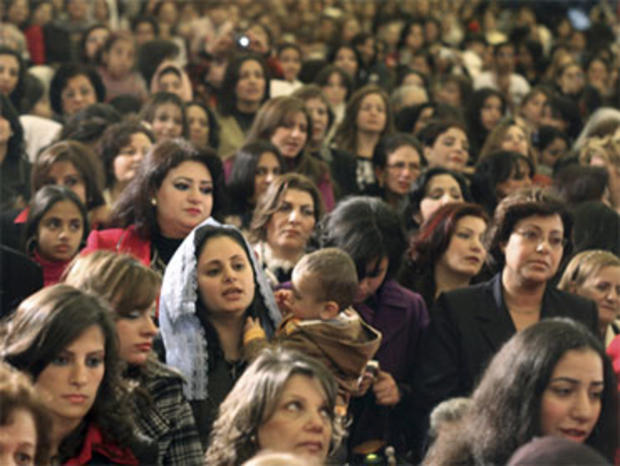Egypt Unrest Brings Christians Hope, Fear
The images of violent protests across Egypt are undoubtedly worrying to all, but concerns over the chaos are felt more acutely by Egypt's minority Orthodox Christians, who have complained for years that the current government does too little to protect them.
The New Year began in Egypt with an explosion of long-simmering sectarian tensions. Thirty minutes after midnight on Jan. 1, during a New Year's Eve mass, a bomb exploded in front of Saints Church in the northern port city of Alexandria, killing 21 worshipers and injuring about 100 others in the deadliest attack on Coptic Christians in more than a decade.
A few days later, a 71-year-old Christian was killed and five others wounded in a shooting aboard a train, prompting three days of riots by the disaffected minority which makes up 10 percent of Egypt's population of 80 million.
Now, as mass protests against President Hosni Mubarak's 30 years of harsh rule appear to be gaining steam, Egypt's Coptics have every reason to fear the possible outcome of a change at the top.
The Christian population is often made the scapegoat for Egypt's ills. When swine flu hit the nation, one Coptic Egyptian told CBS News sarcastically that they blamed Copts.
Complete Coverage: Anger in the Arab World
The continuing protests and violence have aroused fears among most Christians that if the president steps down, a far more radical authority -- possibly far less amicable to the Coptic population -- may take over.
Coptic Pope Shenouda III appeared on Egyptian state television on Sunday and in unusually blunt terms urged all Egyptians to, "safeguard the security and stability of the country."
Live Blog: Egypt in Crisis, Day 7
Many suspect the continuing unrest could go further to boost the aims of the Muslim Brotherhood -- the largest and best organized opposition group in Egypt, and one which seeks to turn the country into a non-secular, Islamic state -- than to help the majority of Egyptian citizens who are tired of their government.
Most analysts say that if free and fair elections were to be held, the Islamist Muslim Brotherhood would win, easily.
Officially illegal but largely tolerated by the Mubarak government, the Brotherhood boasts thousands of grassroots members. It won one-fifth of the seats in parliamentary elections in 2005 - half of those it contested -- with its members running as independents.
"The Islamists have not shown their real face yet. They are still playing a low profile. They want the liberals to damage the regime, and then they will come to light for real business," one analyst told CBS News on condition of anonymity.
There are some Christians, however, who are less concerned, essentially telling CBS the Mubarak government was doing them no favors and things could improve.
Omar Al-Sharif, Egypt's most famous actor, who starred in Hollywood films, was clear.
"I give my full backing to the people. The President has to resign. He has been a president for 30 years. This is enough," says the actor, now 78.
Some insist that the crowds in the streets represent a cross-section of Egyptian society: men and women, rich and poor, young and old, Christian and Muslim -- and there is some truth to that assessment.
"Christian or Muslim, it's not important, similar poverty similar concerns! Hosni Mubarak, the plane is waiting. Saudi Arabia is not far," sang people in Shubra, a working-class district in the center of Cairo known as a stronghold of the Coptic community. They singers were marching to Tahrir Square, to join thousands of others calling for Mubarak's ouster.
